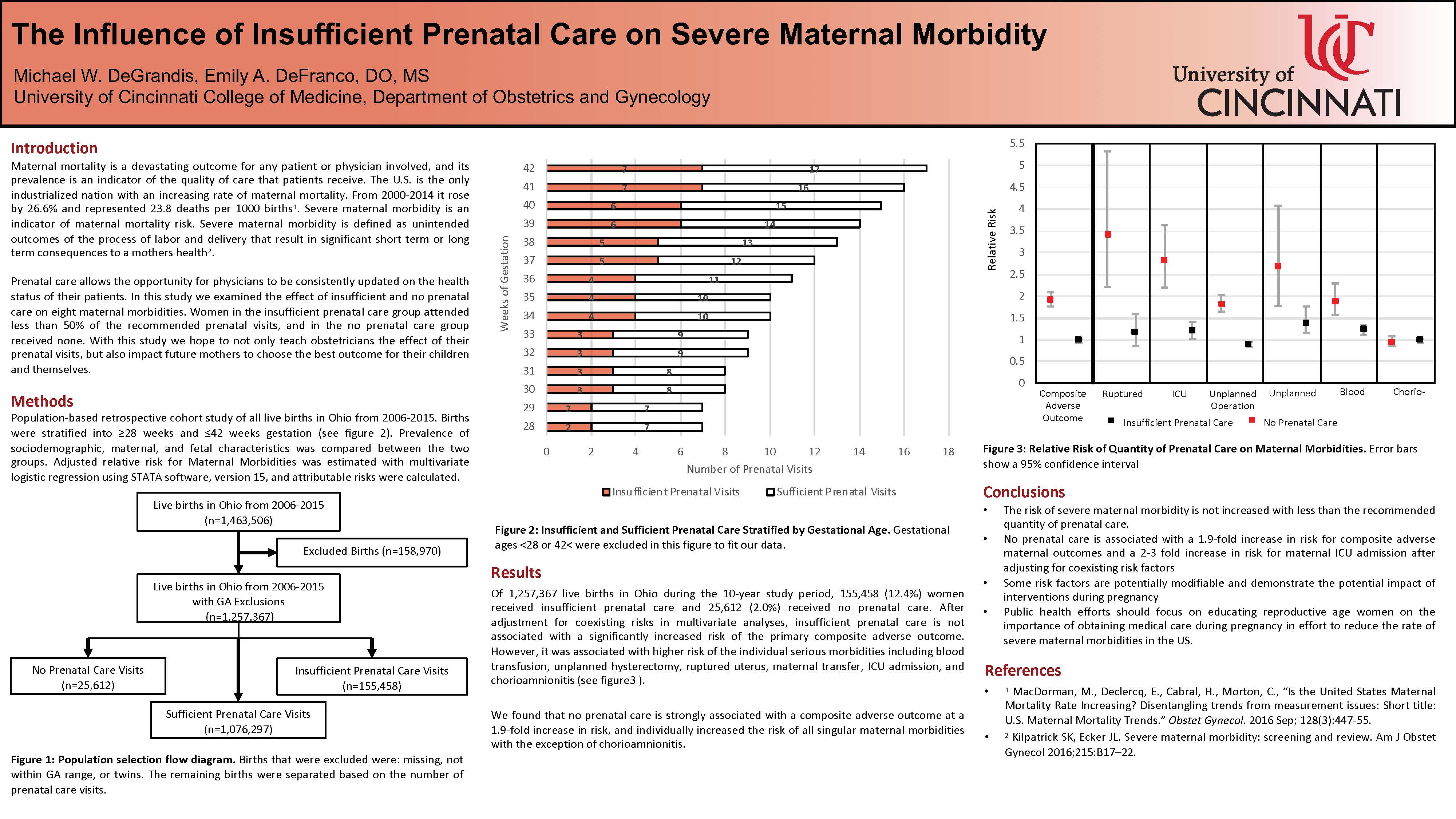The Influence of Insufficient Prenatal Care on Severe Maternal Morbidity
Main Article Content
Abstract
By Michael Degrandis, Biology
Advisor: Emily Defranco
Presentation ID: AM_A15
Abstract: Lack of prenatal care is associated with increased risk of pregnancy complications. We sought to quantify the influence of insufficient number of prenatal care visits on serious maternal morbidity among a contemporary population of live births in the state of Ohio. Population-based retrospective cohort study of all live births in Ohio (2006-2015). The exposure variables were insufficient and lack of prenatal care, compared to referent group of sufficient care. Maternal demographic characteristics and obstetric outcomes from the birth certificate were compared between prenatal care groups. Insufficient prenatal care was defined as less than 50% of the recommended number of prenatal care visits per the American College of Obstetricians and Gynecologists, stratified by gestational age at birth. The primary outcomes were maternal ICU admission during delivery and a composite adverse maternal outcome (blood product transfusion, unplanned hysterectomy, unplanned operation after delivery, ruptured uterus, or maternal ICU admission). Of 1,393,054 live births in Ohio during the study period 158,532 (10%) women received insufficient prenatal care and 29,276 (2.1%) received no prenatal care. The risk of severe maternal morbidity is not increased with less than the recommended quantity of prenatal care. However, no prenatal care is associated with a 1.7-fold increase in risk for composite adverse maternal outcomes and a 2-3-fold increase in risk for maternal ICU admission. Public health efforts should focus on educating reproductive age women on the importance of obtaining medical care during pregnancy in effort to reduce the rate of severe maternal morbidities in the US.
